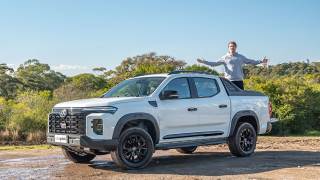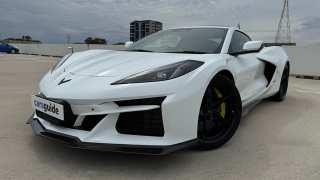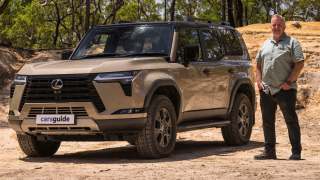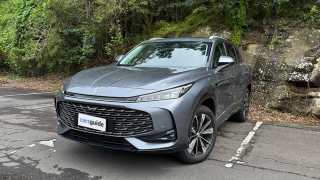The homegrown Holden ute is about to be retired forever, after clocking up almost 65 years on Australian roads. The Aussie icon has had its sales -- and hopes -- crushed by a flood of pick-ups imported from Thailand.
One in five of all new vehicles sold so far this year comes from Thailand, second only to Japan. Australian-made cars now account for less than one in 10 of all new vehicle deliveries; local production is at its lowest level since 1957.
Enthusiast buyers have less than three years to decide if they want a new Holden ute before it is relegated to the history books alongside the arch rival Ford Falcon ute by the end of 2016.
The end of an era means the Holden Commodore ute will likely reach cult status. When the Kingswood "one-tonner" ute eventually went out of production in 1984 and wasn't immediately replaced (a Commodore ute didn't surface until 1990) its resale values skyrocketed.
Holden would not comment on the future or the fate of the Commodore ute. But News Corp Australia has been told that if Holden continues manufacturing beyond 2016 it will adopt two new "global" cars, one of which is a large front-wheel-drive sedan that will not be made into a ute.
Holden's US police car export program could have given the Commodore ute a stay of execution because it shares its core underbody structure with the Caprice. But ute sales are now so low Holden bosses are poised to euthanize it.
Holden Commodore ute sales are down by a staggering 31 per cent year-to-date, the lowest sales of all time. The sedan and wagon are up 15 per cent since the new Commodore arrived. Holden cannot justify the investment in a new Commodore ute because buyers have shifted to Toyota HiLux-style pick-ups -- most of which are made in Thailand, where production labour rates are one-fifth of Australia's.
Adding salt to the wound, Australia has a Free Trade Agreement with Thailand and vehicles imported from the kingdom have attracted a zero per cent tariff since 2010.
The result has been catastrophic for local car manufacturers but the homegrown utes have been hit hardest. More than 100,000 4WD pick-ups from Thailand have been sold in Australia in the first nine months of this year alone, compared to just 4100 Commodore utes and 3500 Falcon utes. At their peak in 2004, Holden and Ford sold more than 20,000 utes each.
The Toyota HiLux was the second best-selling vehicle in Australia last year with more than 40,000 deliveries -- after leading the entire new-car market on six individual months. So far this year the Toyota HiLux is the third best-seller -- behind the Toyota Corolla and Mazda3 small cars -- but three other pick-ups regularly appear in the Top 10 (Nissan Navara, Ford Ranger, Holden Colorado).
It's not just the mining boom driving sales; about half of all imported utes are bought by small businesses and private buyers. "We've seen orders more than triple in the past five years," said Abe Tomas, managing director of Fleet and Financial Products at Macmillan Shakespeare, one of Australia's largest car leasing companies.
"A lot of companies are now using crew cab utes to replace station wagons. But they're also popular with private buyers because they're part 4WD, part family car and part ute. They're more of a lifestyle vehicles these days."
Holden built a four-door ute called the Crewman in 2004 to try to compete with imports, but the model was axed in 2006 because of weak sales. The market had already shifted towards roomier, diesel-powered imported crew cab utes.
How the Free Trade Agreement with Thailand killed the Aussie ute
Sales of Australian made vehicles were overtaken by Thailand in the very first year the Free Trade Agreement with Thailand came into effect, in 2010.
And Thailand has been powering ahead ever since. Sales of Thailand-made vehicles are up a staggering 46 per cent in the first nine months of this year -- and have already overtaken last year's annual tally.
Thailand-made vehicles are now on track to comfortably eclipse 200,000 sales in Australia this year for the first time.
Ford shipped just 100 Australian-made Territory SUVs to Thailand in 2012, the same year we imported 170,000 Thai-made vehicles.
Ford says there are no plans to ship more vehicles from Australia to Thailand. Holden says it has no plans to embark on similar a mission.
The Territory SUV may have a zero per cent import tariff in Thailand but it attracts a separate 40 per cent excise because of its engine size, pushing the price to $100,000 (compared to $40,000-$60,000 in Australia).
Australia versus the world: where your car comes from
Japan: 275,450 -- down 7 per cent
Thailand: 172,850 -- up 46 per cent
Korea: 102,950 -- down 6 per cent
Australia: 83,500 -- down 18 per cent
* Number of vehicles sold in Australia January to September 2013, percentage change compared with same period last year. Source: FCAI.
This reporter is on Twitter: @JoshuaDowling





















Comments